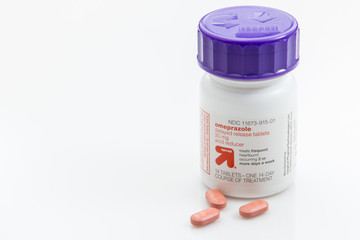
Probiotic Combo Stops Toxic Shock Syndrome
The widespread, pathogenic microbe Staphylococcus aureus can colonize the skin and mucous membranes throughout the body, particularly the vagina and gastrointestinal tract. A virulent strain of the bacterium produces proteins that trigger toxic shock syndrome (TSS), a disease characterized by the quick onset of fever, a telltale rash, and, without treatment, multi organ failure. In the vagina, TSS is associated with a life-threatening reaction from the immune system.
Probiotics may help prevent the disease before the cytokine cascade ever begins. A study published in the American Society for Microbiology's journal Microbiology Spectrum reports that strains of 2 bacteria, Lactobacillus acidophilus and Lacticaseibacillus rhamnosus, successfully inhibited the production of the superantigens that cause TSS, in lab experiments. L. acidophilus, in addition, inhibited the growth of the S. aureus strains that produce the problematic proteins.
A combination of the 2 could both prevent growth and inhibit the immune response. "It's kind of a double whammy against S. aureus," said microbiologist Patrick Schlievert, Ph.D., at the University of Iowa Carver College of Medicine, in Iowa City. "If any toxin is made, the probiotics still prevent inflammation."
He noted that adding these probiotics to tampons or other menstrual products could reduce the risk -- and global incidence -- of TSS associated with menstruation. Such a preventive measure has the potential to benefit millions of vulnerable people, Schlievert said. "We know that 20% of people over age 12 cannot make antibodies and never will make antibodies against toxic shock syndrome," he said.
Schlievert has been studying TSS -- and its prevention -- for decades. In the early 1980s, he was the first researcher to identify the toxin that triggers an overreaction of the immune system, and to show how high-absorbency tampons facilitated production of that toxin if S. aureus was present.
The new work, he said, was motivated by observations made during an earlier study. A few years ago, he and his colleagues recruited 205 women to test whether a novel molecular mixture, when added to tampons, would inhibit pathogenic bacteria. That molecule proved effective against E. coli and other pathogens, but the researchers noticed an unexpected consequence.
"Some of the women in the treatment group had this tremendous growth of Lactobacilli," Schlievert said.
Further studies revealed that 9 of those women were colonized with only L. crispatus and no other bacteria. In microbiology research, Schlievert said, colonization by a single bacterium is often regarded as unhealthy. In this case, however, it offered an effective action against pathogenic S. aureus.
Lactobacillus bacteria have already been shown to be safe, Schlievert said, and the new work suggests that treatment with L. crispatus alone, or L. acidophilus and L. rhamnosus in combination, could dramatically reduce the risk of TSS in vulnerable populations. Strains of S. aureus can also cause enterocolitis, a life-threatening immune response in the gut. Probiotics may also help reduce the production of dangerous proteins for that disease, said Schlievert.
In ongoing and future work, Schlievert and his team are investigating how to use probiotics to prevent skin staph infections. The skin of people with atopic dermatitis, or with type 2 diabetes, is often colonized with the strains of S. aureus that produce superantigens, which are often resistant to treatment with standard antibiotics. In patients with type 2 diabetes, those superantigens could lead to foot ulcers that, if not treated successfully, could lead to amputation.
Schlievert sees probiotics as a promising way to prevent those complications. "If we can improve their lives by using this approach, that would be wonderful."
Original article from Science Daily.
----------------------------------------------------------------------------------------------------------------------
To learn more about infection control and to earn CNE contact hours, Pedagogy offers the following courses:
- Blood and Body Fluid Spill Management
- Bloodborne Pathogens
- Clostridium Difficile Colitis Prevention And Management
- Goal: Zero Catheter Related Blood Stream Infections
- Handwashing Responsibilities in Healthcare
- Infection Control Practices in Healthcare
- Infection Prevention and Control in Long-Term Care
- Management of Norovirus Gastroenteritis in Post Acute Care Settings
- Management of Norovirus Gastroenteritis in Healthcare Settings
- Sepsis
- Wound Care in Todays Healthcare Environment
Our courses are available for purchase by the individual or facility. For individuals, register with us to create your username and password, click on the course title of interest and then click the Buy Now button. For a complete listing of all our online continuing education courses click here.
For facilities or organizations that would like to purchase education for their staff, email sales@pedagogyeducation.com let us know the course(s) of interest and how many staff members you need to provide education for, and we will be happy to send you a price quote!

